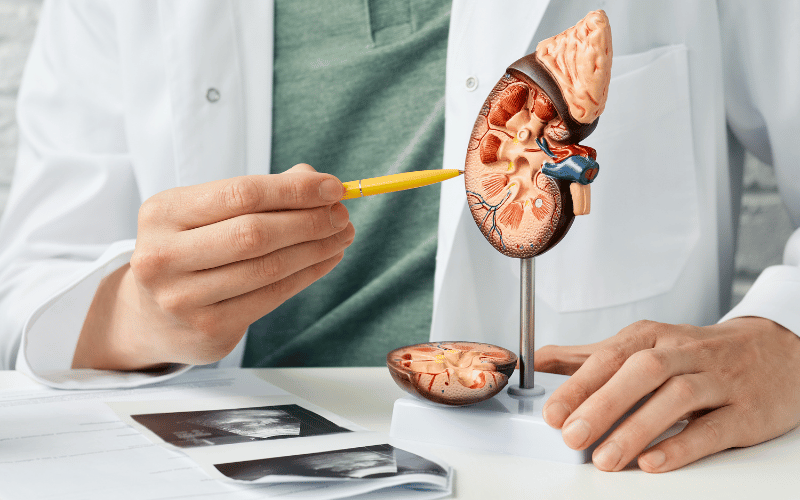2. Kidney Stones: The Agonizing Tiny Intruders

Kidney stones are a notorious symptom of PHPT, often marked by intense pain as these hard mineral deposits travel through the urinary tract. The connection lies in calcium’s role in stone formation, with hypercalcemia leading to higher calcium levels in the urine.
The pain associated with kidney stones can be sharp and sudden, often described as one of the most severe types of pain. It usually starts when the stone begins to move from the kidney to the bladder, prompting a visit to the emergency room.
Aside from the pain, other signs of kidney stones include blood in the urine, nausea, and frequent urges to urinate. These symptoms demand immediate medical attention to assess and treat the underlying issue.
Preventative measures against kidney stones involve staying well-hydrated, reducing salt intake, and consuming foods rich in oxalates in moderation. For individuals with PHPT, managing calcium levels with the guidance of a healthcare provider is also key to prevention. (2)